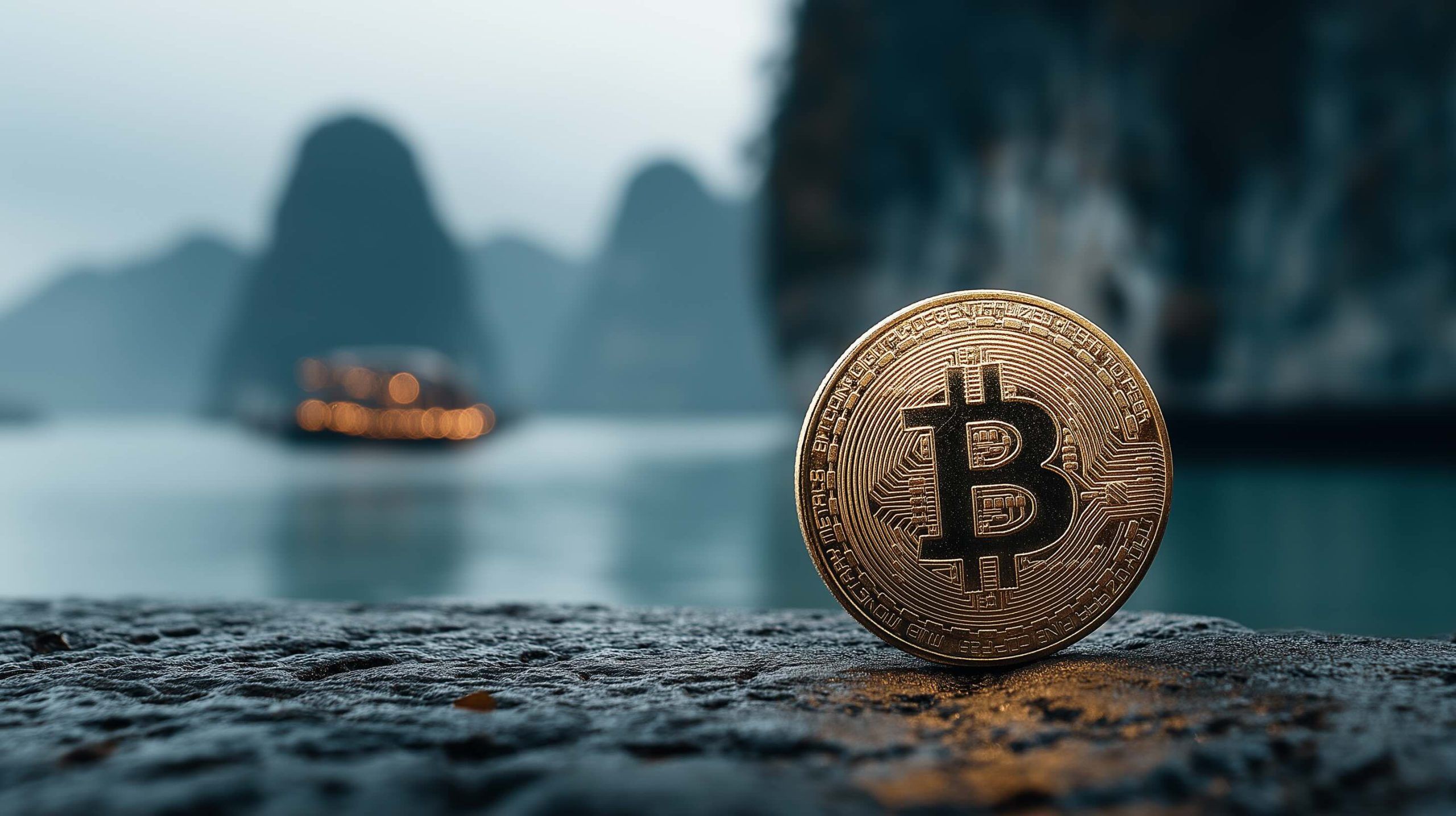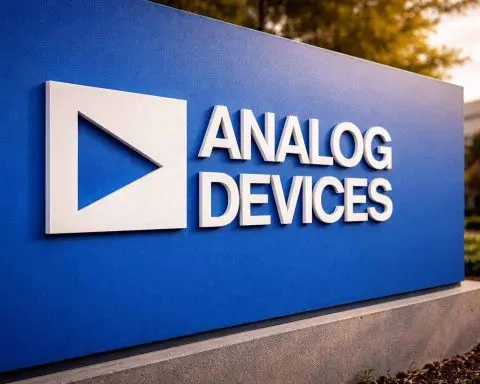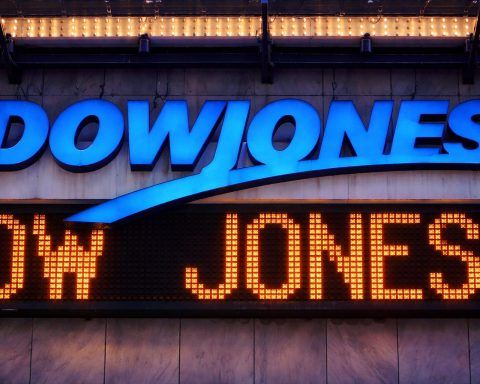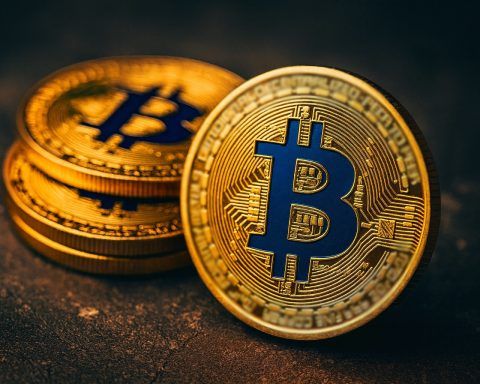- Vietnam is fast-tracking a regulated crypto ecosystem by building an “International Financial Center” in Da Nang, inviting global firms like Binance and Bybit to lead the way vietnamnet.vn livebitcoinnews.com.
- At a Sept 2025 UAE meeting, Vietnam’s Deputy PM Nguyen Hoa Binh met Binance CEO Richard Teng and Bybit CEO Ben Zhou. He asked Binance to open a headquarters in Da Nang and collaborate on a regulated crypto exchange, and praised Bybit’s success (2.5M Vietnamese users) theinvestor.vn livebitcoinnews.com.
- Bybit (the world’s #2 exchange) and Binance have each signed MOUs and pledged to share expertise: Bybit will help train talent and advise on laws livebitcoinnews.com prnewswire.com, while Binance agreed to advise Vietnam’s international finance center and signed a blockchain tech MOU with Da Nang theinvestor.vn theinvestor.vn.
- South Korea’s regulated custodian BDACS and Vietnam’s IDGX (part of IDG Capital) have formed a joint venture to offer crypto exchange and custody services under Vietnam’s new sandbox regulations theinvestor.vn. This JV will launch within a year, leveraging BDACS’s compliance expertise and IDGX’s local network theinvestor.vn.
- Vietnam’s new legal framework is unprecedented: a 5-year pilot crypto market requires all digital assets be backed by real assets, issued only by Vietnamese firms, and transacted in dong theinvestor.vn vietnamnet.vn. The Law on Digital Technology (effective Jan 2026) formally defines tokenized assets and tasks agencies with AML/CTF oversight theinvestor.vn.
- Domestic players are gearing up: banks (MB, VPBank) and securities firms (SSI, TCBS) are preparing to launch crypto exchanges, and tech firms (FPT, CMG) will build infrastructure vietnamnet.vn theinvestor.vn.
- Experts note parallels with global financial hubs. Vietnam aims to blend best practices from Singapore, Hong Kong and Dubai in fintech regulation en.vneconomy.vn. For example, Terne Holdings’ Andy Khoo estimates Da Nang’s IFC “could add a remarkable $3–5 billion annually to Vietnam’s GDP” en.vneconomy.vn if the project succeeds.
- Challenges remain: Vietnam’s strict capital requirement (≥10 trillion VND, ~$409M) and the global scrutiny of exchanges like Binance could slow entry livebitcoinnews.com vietnamnet.vn. Regulators will need robust oversight to ensure transparency, AML compliance and protect investors vietnamnet.vn vietnamnet.vn.
With these bold moves, Vietnam is positioning itself as a regional crypto hub – but success will hinge on balancing innovation with investor safeguards.
Vietnam’s Digital Asset Strategy and Financial Hub Ambitions
Vietnam is aggressively pushing blockchain and crypto into its official financial system. In mid-2025 the government approved Resolution 5/2025 and new laws to pilot a domestic crypto market for five years vietnamnet.vn livebitcoinnews.com. This framework mandates that any traded “crypto assets” be backed by real underlying assets (no securities or fiat), issued by Vietnamese entities, and settled in Vietnamese dong theinvestor.vn vietnamnet.vn. It also sets a staggeringly high barrier to entry – a minimum charter capital of 10 trillion VND (≈$409 million) for firms entering the Da Nang International Financial Center (IFC) livebitcoinnews.com vietnamnet.vn. The Digital Technology Industry Law, effective Jan 1, 2026, explicitly defines tokenized digital assets and tasks regulators with cybersecurity, anti-money laundering, and counter-terrorism duties theinvestor.vn vietnamnet.vn.
Simultaneously, Vietnam is mobilizing resources to support this strategy. A national blockchain platform (NDAChain) was launched to underpin secure transactions vietnamnet.vn. Domestically, major banks (MB, VPBank) and brokerages (SSI, Techcom Securities) are preparing crypto exchanges, and tech giants (FPT, CMG, VNZ) are developing blockchain infrastructure and custody solutions vietnamnet.vn theinvestor.vn. Vietnam’s goal is threefold: legalize and tax offshore crypto flows, integrate digital assets into the broader economy (e.g. real estate, bonds, carbon credits), and enhance investor protection via clear AML/KYC rules vietnamnet.vn. By forming this regulated ecosystem, the government hopes to shift billions in crypto trading onshore and raise new tax revenue, rather than leave citizens to unregulated OTC markets.
Vietnam’s digital push is part of a grander plan to build two IFCs (in Ho Chi Minh City and Da Nang) modeled on global hubs en.vneconomy.vn en.vneconomy.vn. Experts from the Tony Blair Institute urge Vietnam to adopt a phased, hybrid approach – taking best practices from Singapore, Hong Kong, Dubai and others while tailoring to local needs en.vneconomy.vn en.vneconomy.vn. At a January conference in Da Nang, analyst Andy Khoo even estimated the city’s new IFC could add $3–5 billion to GDP each year en.vneconomy.vn. Clearly, Danang is being groomed as the future “Silicon Valley” of Vietnam’s financial system, with blockchain and fintech at its core.
Binance and Bybit: Top Crypto Players Answer the Call
To jumpstart its vision, Vietnam has recruited the world’s leading crypto exchanges. In late September 2025, Deputy PM Nguyen Hoa Binh traveled to the UAE and met face-to-face with Binance and Bybit executives livebitcoinnews.com theinvestor.vn. In those high-level talks, Binh invited Binance CEO Richard Teng to open a headquarters in Da Nang and to work closely with the planned IFC to launch a licensed crypto exchange livebitcoinnews.com theinvestor.vn. (Vietnamnet reported Teng was even offered a role as senior advisor on the Da Nang project, leveraging his Abu Dhabi regulatory experience vietnamnet.vn theinvestor.vn.)
Binance didn’t balk at the proposition. In fact, the meeting saw Binance and Danang’s city authorities sign a memorandum of understanding on blockchain development theinvestor.vn. Binance publicly pledged to “share expertise and cooperate in developing Vietnam’s crypto asset market” theinvestor.vn. As the world’s largest crypto exchange, Binance’s involvement is a major endorsement of Vietnam’s plan. (By one estimate, Binance now has 280 million users globally and $16 billion in daily volume theinvestor.vn.)
Similarly, Vietnam emphasized Bybit’s role. Bybit – the #2 exchange – already has over 2.5 million Vietnamese users (about 15% of the market) livebitcoinnews.com theinvestor.vn. Binh congratulated Bybit on this success and urged it to “continue accompanying Vietnam” as the country pilots digital assets prnewswire.com theinvestor.vn. In Dubai, Bybit’s leadership (CEO Ben Zhou and Co-CEO Helen Liu) met with Binh and reaffirmed their support. Bybit committed to help shape Vietnam’s legal framework: they will “share international best practices and regulatory expertise,” provide training for Vietnamese blockchain talent, and advise on safe, transparent market rules prnewswire.com prnewswire.com. Ben Zhou said, “Vietnam is one of the most dynamic markets in the world when it comes to digital assets, and we are honored to support the country’s vision for a safe, transparent, and innovative ecosystem.” prnewswire.com. In short, Vietnam has brought both crypto giants into its corner.
South Korea’s BDACS and the New Custody JV
Vietnam’s crypto push also caught the eye of institutions outside the exchange world. On Sept 24, 2025, South Korea’s BDACS – a fully regulated digital asset custodian – announced an MOU with Vietnam’s IDGX (a unit of IDG Capital) to form a joint venture in Vietnam theinvestor.vn. This JV will focus on building crypto exchange and custody services for institutional clients, along with compliance, verification frameworks, and even crypto treasury infrastructure theinvestor.vn. It will start operations under Vietnam’s sandbox regime later in 2025, leveraging IDGX’s local know-how and BDACS’s blockchain compliance expertise theinvestor.vn.
This deal highlights how Vietnam’s new laws are creating space for serious institutional players. The BDACS–IDGX JV is effectively an attempt to import South Korea’s high standards for asset custody and apply them in Vietnam’s emerging market theinvestor.vn. It’s akin to how Japanese or European custodians partner abroad: Vietnam is signaling it wants regulated, compliant infrastructure, not just offshore operators.
Crucially, the partnership comes on the heels of Vietnam’s freshly introduced rules: a strict “crypto asset market” pilot that legally requires token issuers to be Vietnamese companies and forbids fiat-backed tokens theinvestor.vn. The JV explicitly aims to “create a stable and transparent digital asset financial infrastructure” under this framework theinvestor.vn. BDACS’s entry suggests Vietnam’s sandbox approach is attracting reputable global firms to help build the new market.
Regulatory Overhaul and Infrastructure
Vietnam’s leadership has made clear that creating a sound regulatory framework is key. Under the pilot program, only digital assets backed by tangible assets (real estate, commodities, etc.) can be traded, and all payments must be in dong theinvestor.vn. This contrasts sharply with purely speculative tokens; it’s designed to prevent bubbles and illicit use. The government has even published guidance on minimum capital and governance for the exchange operators vietnamnet.vn. At the same time, the recent Digital Technology Industry Law (approved mid-2025) is a landmark: it for the first time treats tokenized assets as legal financial instruments theinvestor.vn. Under this law, Vietnam’s agencies will oversee crypto not only for innovation but also for national security, money laundering and terrorism finance prevention theinvestor.vn.
Behind the scenes, Vietnam has also built infrastructure. The launch of NDAChain – a national blockchain – is a cornerstone of the new ecosystem vietnamnet.vn. This secure ledger will handle everything from online purchases to public finances. By providing a domestic chain, Vietnam can ensure transactions comply with its rules (for instance, storing data onshore and in dong). According to Vietnamnet, NDAChain “highlights Vietnam’s accelerated strategy” to integrate blockchain into its economy vietnamnet.vn.
In practice, the government’s plan is being fleshed out step-by-step. Danang, as the pilot IFC city, will use a sandbox to test “new financial models such as digital assets, cryptocurrencies, [and] crypto payment and transfer solutions” theinvestor.vn. Only firms meeting all criteria (capital, fit and proper checks) will get exchange licenses. A government resolution even stipulates that asset-exchange licenses will only be issued to eligible companies during the 5-year trial theinvestor.vn. Notably, some local ventures are already lining up – e.g. Vietnam Thinh Vuong’s CAEX, Techcom’s TCEX, and VIX’s VIXEX are preparing exchanges theinvestor.vn – indicating strong domestic interest.
Global Comparisons and Expert Views
Vietnam’s approach stands out in Asia. Unlike China’s outright bans, Vietnam is cautiously opening a regulated market theinvestor.vn. Unlike permissive regulators (e.g. Malta or some Caribbean licenses), Vietnam imposes hard caps (dong-only, domestic issuers, heavy capital requirements). Compared to neighbors: Singapore licenses payment-token exchanges under its Payment Services Act, and Hong Kong requires SFC approval for crypto trading platforms. Vietnam sits somewhat between these models – it allows major players to operate but under very strict Vietnamese control.
Analysts see familiar patterns. Economic experts say Vietnam is strategically emulating the success of established IFCs. Country Director Rich McClellan (Tony Blair Institute) advises a “phased and hybrid” strategy, blending elements of Singapore, Hong Kong and Dubai’s models en.vneconomy.vn. At Da Nang’s 2025 IFC conference, Andy Khoo of Terne Holdings was optimistic: Vietnam’s steady growth and rising FDI make it an “emerging star in ASEAN,” and he predicted the Da Nang IFC could contribute an extra $3–5 billion per year to GDP en.vneconomy.vn.
Other voices highlight the ecosystem angle: by attracting Binance and Bybit, Vietnam could not only bring in foreign capital but also help local tech and real-estate sectors. Vietnamnet notes that partnerships with top exchanges will “enhance the credibility” of the IFC and link finance, technology and real estate together vietnamnet.vn. In other words, Vietnam is trying to replicate Silicon Valley-style innovation clusters, but with its own regulatory safeguards.
Outlook and Remaining Challenges
Vietnam’s digital asset saga is unfolding rapidly, but uncertainties remain. Global exchanges like Binance have faced legal troubles in many countries, so Vietnam will need strict oversight to avoid regulatory conflicts livebitcoinnews.com vietnamnet.vn. The steep capital requirement (10T VND) may limit who can enter initially livebitcoinnews.com – smaller startups might be shut out. There’s also the question of enforcement: for years Vietnamese individuals have traded crypto informally, so bringing that activity into licensed platforms will take time. The government acknowledges that an active OTC market still exists and poses risks vietnamnet.vn.
Nevertheless, the momentum is clear. Vietnam’s authorities have linked digital assets to national development goals (finance, digital economy, anti-corruption). They see blockchain not as a frivolous gamble but as a strategic infrastructure (hence NDAChain and legal reform). If the country can balance innovation and control, it could leapfrog competitors. As Bybit’s Helen Liu put it after the Dubai meeting: Vietnam and Bybit share “ambition to position the country as a hub for international finance and innovation” – from drafting policy to training talent prnewswire.com. The next few years will show whether Vietnam’s audacious plan can truly turn Da Nang into Asia’s next crypto-finance powerhouse.
Sources: Vietnamese government statements and media reports theinvestor.vn livebitcoinnews.com vietnamnet.vn; industry news (LiveBitcoinNews, Bitcoin.com) livebitcoinnews.com theinvestor.vn; company press releases (Bybit/PR Newswire) prnewswire.com; TheInvestor news theinvestor.vn theinvestor.vn; analyses by experts (Vietnam Economic Times) en.vneconomy.vn en.vneconomy.vn.









